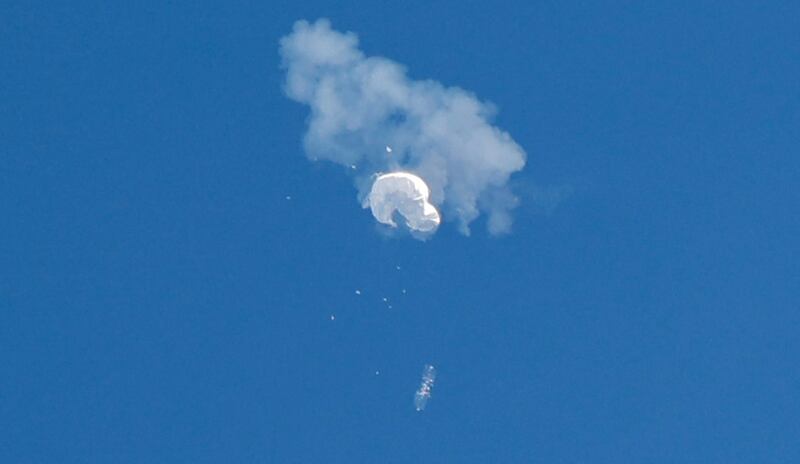The Taiwanese defense ministry said another Chinese balloon has been detected crossing the median line in the Taiwan Strait, the fifth balloon sighting this month.
The line serves as the de-facto boundary between Taiwan and mainland China.
As Taiwan is preparing for presidential and parliamentary elections on January 13, 2024, any intrusion from China would be treated as highly sensitive. Beijing considers the democratic island as one of its provinces and has been accused by Taipei of meddling in Taiwan’s politics.
In the latest incident, a balloon was spotted at around 11 p.m. on Tuesday night near the port city of Keelung but "disappeared" at around 2 a.m. Wednesday morning, the Ministry of National Defense (MND) said in a statement.
Another balloon was detected also near Keelung on Monday morning, and two were spotted on Sunday in the morning and the afternoon. The ministry told Taipei-based media that preliminary assessments are that they were weather balloons.
On Dec. 7, a balloon was detected, also near Keelung. The MND declined to confirm whether it was a surveillance balloon.
Security risks?
“It is highly likely that these balloons have been moving around Taiwan for some time, so I don’t think it has anything to do with the election specifically,” said Ben Lewis, an independent defense analyst based in Washington D.C.
“I’m not concerned about any security risks associated with the balloons so long as they don’t violate Taiwan’s sovereign territory,” Lewis told Radio Free Asia.
Another analyst, Wendell Minnick, said that “they are most likely small weather balloons, similar to the one discovered on Matsu island in May.”
On May 13, Taiwanese troops stationed on Matsu discovered the wreckage of a balloon imprinted with “Shanghai Chang Wang Meteorological Technology Company” indicating it was a meteorological device. A similar balloon was found in February, also in Matsu.
“I suspect these balloons are a normal occurrence,” said Minnick, editor of “China In Arms” on Substack.
However, the MND never revealed Chinese balloon intrusions before 2023, the Taipei-based analyst told RFA.
“These should not be confused with the Chinese balloon that flew over the U.S. in February,” he added.

In the so-called “2023 Chinese balloon incident,” the Pentagon said that a Chinese high-altitude balloon was flying for days over the continental U.S. before being shot down by a stealth F-22 Raptor fighter jet in the Atlantic Ocean on Feb. 4.
U.S. authorities said it was a high-altitude surveillance platform the size of a school bus but China said it was a weather balloon that was blown off course.
The incident prompted U.S. Secretary of State Antony Blinken to postpone a planned visit to China and marked a further dip in the already problematic relations between Washington and Beijing.
Edited by Mike Firn and Taejun Kang.
